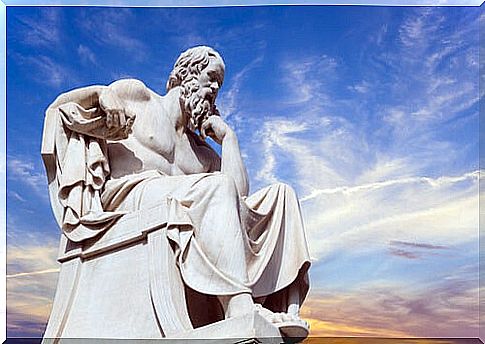A Journey To The Origin Of Philosophy

Thales of Miletus is considered by many to be the father of philosophy. From his famous words “water is the principle, or element, of things,” we can see that this liquid element played a central role in his thoughts. However, did he also think about his role in the genesis of philosophy? Was philosophy really born with him?
In this journey into the heart of philosophy, I want to introduce you to the dark and dizzying caverns of a way of thinking that originates in an infinite amount of ideas. Bliss, sadness, hatred, anger, affection… are all connected to our mind and the philosophical movement of the human mind trying to respond to the meaning of our existence.
Contradictions regarding the origin of philosophy
Finding the origin of philosophical thought is by no means an easy task. You could even say that it is a question that has led to a multitude of contradictions throughout history. The Greeks regarded Thales of Miletus of the seventh century BC as the first real philosopher, but this question is not entirely clear either.

Initially, the Greeks saw philosophy as a rational way of thinking. In that sense, it is not necessary to turn to extraordinary elements in order to explain reality. The Greeks also attached great importance to the simple rejection of contradictions, always seeing logic as the fundamental principle.
In view of this Greek definition of philosophy, can we say that Thales of Miletus was the first philosophical thinker in the history of mankind? Is it possible that others preceded him, or are we discussing this philosopher because the lessons of other great thinkers simply did not reach us before his time?
Hypotheses about the origin of philosophy
Today there are two schools of thought when it comes to the question of where the true heart of philosophy lies. Some are convinced that the origins of philosophy can be found in the Orient, while others trace their origins back to ancient Greece.
The Eastern Origins of Philosophy
Within the oriental current there are hypotheses that the Greeks were only the messengers of philosophy. According to this group of thinkers, the first Hellenistic philosophers traveled to Babylonia and Egypt and learned about mathematics and astronomy, knowledge that they later disseminated within their own culture.
Nevertheless, this movement was maintained by Alexandrian philosophers who were around during the time of the emperor Alexander. This current was openly contradicted by the Greek current, making it seem like a way of discrediting the thinkers within this current.
Christian apologists also tried to maintain this theory, but in the end the occidental current managed to undermine these hypotheses, which were really created for the sole purpose of confronting other hypotheses.
However, the majority of historical studies show that Babylonian astronomy can generally be divided into astrology and prediction. At the same time, Egyptian mathematics lacks a necessary level of abstraction, so it never went beyond the practicality of measuring land.
The Greek Origins of Philosophy
Modern movements, almost all of which came into being in the twentieth century, all argue that the heart of philosophy can be found in the Hellenistic world. There are even several well-known figures who confirm this:
The origin of philosophy according to J. Burnet
Burnet is convinced that philosophy emerges in a radical way as the fruit of the genius of the Hellenistic people. He also calls this ‘the Greek miracle’. All antecedents and conjectural elements do not matter to him; they were simply very talented people.

The Origin of Philosophy According to FM Cornford
Cornford places the birth of philosophy in religious thought. Each mythical aspect of these beliefs actually represents a world adapted to rational speculation, making it a consequence of it.
The origin of philosophy according to JP Vernant
According to Vernant, conjectural elements are the basis for the birth of rationality. The lack of priestly castes, the presence of wisdom, the quest for freedom, writing, and the predominance of a constant need for knowledge have all led to the birth of philosophy.
It is very complicated to determine where the true heart of philosophy lies, because human societies go back thousands of years. The lack of documentary evidence makes this a very difficult task, but also a very pleasant and exciting one. Be that as it may, reason and thoughts are the basis for our search for our origin, the origin of our world and the truth.








